From Local Markets to Global Headlines Mobile Penetration Fuels 85% Reach for news in ghana today, R
- From Local Markets to Global Headlines: Mobile Penetration Fuels 85% Reach for news in ghana today, Reshaping Information Consumption.
- The Rise of Mobile News Consumption
- The Impact on Traditional Media
- Adapting to the Digital Age
- Challenges to Journalistic Integrity
- The Role of Citizen Journalism
- The Digital Divide and Access to Information
- Government Initiatives and Regulations
- Future Trends and Outlook
From Local Markets to Global Headlines: Mobile Penetration Fuels 85% Reach for news in ghana today, Reshaping Information Consumption.
The landscape of information consumption in Ghana is undergoing a rapid transformation, largely fueled by the pervasive reach of mobile technology. Today, approximately 85% of the population has access to mobile services, and this connectivity is profoundly impacting how Ghanaians access news in ghana today. Traditional media outlets are adapting to this shift, while new digital platforms are emerging to cater to a growing, digitally-savvy audience. This increased accessibility to information has implications for civic engagement, economic development, and social awareness across the nation.
The surge in mobile penetration has not only broadened access to news but has also democratized the creation and dissemination of information. Citizen journalism is becoming increasingly prevalent, alongside established media organizations, offering diverse perspectives on current affairs. This evolving environment presents both opportunities and challenges for maintaining journalistic integrity and combating misinformation.
The Rise of Mobile News Consumption
Mobile phones are now the primary source of news for a significant portion of the Ghanaian population. This trend is particularly pronounced among younger demographics, who are more accustomed to consuming content on their smartphones. The convenience and immediacy of mobile news apps, social media platforms, and online news portals are driving this shift away from traditional media like television and radio. The accessibility is incredible and allows individuals to stay informed regardless of location or socioeconomic status.
However, this transition isn’t without its drawbacks. Data costs can be prohibitively expensive for some, creating a digital divide. Furthermore, the proliferation of unverified information on social media poses a challenge to discerning factual reporting from misinformation. Media literacy initiatives are crucial to empower citizens to critically evaluate the news they encounter online.
| 7.8 Million | Major source of shared news and opinion. | |
| 6.2 Million | Widely used for sharing breaking news and community updates. | |
| Twitter (X) | 1.5 Million | Real-time updates, political discussions, and engagement with journalists. |
| Online News Portals (Starr News, Joy News, Citi News) | 4.5 Million | In-depth reporting, investigative journalism, and curated news content. |
The Impact on Traditional Media
Traditional media outlets in Ghana are facing increasing competition from digital platforms. To remain relevant, they are investing in their online presence, developing mobile apps, and leveraging social media to reach a wider audience. Many are adopting a multi-platform strategy, utilizing their websites, mobile apps, social media accounts, and traditional broadcast channels to deliver news and information. This adaptation is crucial for their survival in a rapidly changing media environment.
However, the financial sustainability of traditional media remains a concern. Declining advertising revenues and the challenge of monetizing online content are putting pressure on their business models. Exploring innovative revenue streams, such as subscriptions, sponsored content, and data analytics, is essential for ensuring their long-term viability.
Adapting to the Digital Age
Ghanaian traditional media houses are increasingly recognizing the need to integrate digital strategies. This transition involves more than just a presence on platforms like Facebook and Twitter. It requires a fundamental shift in journalistic practices, embracing data-driven storytelling, and engaging directly with audiences online. This includes developing interactive content, incorporating user-generated content, and monitoring social media conversations to identify trending topics and emerging narratives. Strategic investment in digital skills training for journalists is paramount. The ability to analyze data, create compelling visuals, and adapt content for different platforms is now essential for success.
Furthermore, traditional media are collaborating with technology providers to enhance their digital offerings. This includes partnerships with mobile network operators to deliver news content via SMS or USSD, and leveraging artificial intelligence to personalize news recommendations and improve content discovery. This collaborative approach allows traditional media to reach a broader audience and improve the user experience. The speed with which information can now circulate plays a pivotal role in journalism today.
Challenges to Journalistic Integrity
The rise of digital media presents unique challenges to journalistic integrity in Ghana. The speed and reach of social media can facilitate the rapid spread of misinformation and fake news, potentially undermining public trust in the media. Combating this requires a multifaceted approach, including fact-checking initiatives, media literacy programs, and collaborative efforts between journalists, technology companies, and the government. The potential for manipulation through coordinated disinformation campaigns is a growing concern.
Another challenge is the increasing pressure on journalists to prioritize clicks and engagement over accuracy and objectivity. The incentive structures of social media platforms often reward sensationalist or emotionally charged content, potentially leading to a decline in the quality of journalism. Maintaining ethical standards and upholding the principles of responsible reporting are crucial for preserving public trust and ensuring a well-informed citizenry.
The Role of Citizen Journalism
Citizen journalism, where ordinary citizens contribute to the reporting and dissemination of news, is gaining traction in Ghana. Equipped with smartphones and social media accounts, citizens are increasingly documenting and sharing events as they unfold. This can provide valuable insights into local issues and offer alternative perspectives. However, it also raises concerns about accuracy, credibility, and ethical standards.
While citizen journalism can complement traditional reporting, it’s essential to verify the information provided by citizen journalists. Media organizations should develop guidelines for engaging with citizen contributors and establishing clear protocols for fact-checking and verification. Empowering citizens with media literacy skills is also crucial for ensuring that they contribute responsibly to the news ecosystem.
- Verification is Key: Always verify information before sharing it online.
- Source Credibility: Assess the reliability of the source before accepting its claims.
- Be Aware of Bias: Recognize that all sources have a perspective.
- Fact-Check: Utilize fact-checking websites and resources to confirm information.
The Digital Divide and Access to Information
Despite the rapid growth of mobile penetration, a digital divide persists in Ghana. Access to affordable internet data remains a barrier for many, particularly in rural areas and among lower-income communities. This limits their ability to access news and information, potentially exacerbating existing social and economic inequalities. Closing this digital divide is essential for ensuring that all citizens have equal access to information and opportunities.
Initiatives to expand internet access, reduce data costs, and provide digital literacy training are crucial. Public-private partnerships, government subsidies, and community-based initiatives can play a role in bridging the digital gap and empowering marginalized communities to participate fully in the digital age.
Government Initiatives and Regulations
The Ghanaian government has implemented several initiatives to promote digital inclusion and improve access to information. These include investments in broadband infrastructure, the development of e-government services, and the implementation of policies aimed at reducing data costs. However, challenges remain in ensuring that these initiatives reach all segments of the population. Furthermore, the government is grappling with the need to regulate social media platforms to combat misinformation and hate speech, while also protecting freedom of expression. Striking the right balance between these competing interests is a complex task.
The potential for enacting legislation which could stifle freedom of speech or suppress critical reporting necessitates a delicate approach. Any regulations concerning expression on digital platforms must fully uphold the Ghanaian constitution and prevent undue interference with journalistic activity. Continuous consultation amongst stakeholders – including press organizations, civil society groups, and technology companies – is essential.
Future Trends and Outlook
The future of news consumption in Ghana is likely to be shaped by several emerging trends. Artificial intelligence (AI) will play an increasingly important role in content creation, curation, and personalization. The rise of voice-activated assistants and smart speakers will also create new avenues for accessing news and information. Furthermore, virtual and augmented reality technologies have the potential to transform how news is experienced, offering immersive and interactive storytelling experiences.
However, it is crucial to address the ethical implications of these emerging technologies. The use of AI in journalism raises concerns about bias, accountability, and the potential for job displacement. Developing ethical guidelines and ensuring transparency in the use of these technologies is essential for maintaining public trust.
- Invest in digital skills training for journalists.
- Promote media literacy among citizens.
- Strengthen fact-checking initiatives.
- Expand internet access and reduce data costs.
- Foster collaboration between media, technology companies, and government.
The rapid evolution of the media landscape in Ghana presents both opportunities and challenges. Adapting to the changing dynamics requires a concerted effort from all stakeholders, including media organizations, technology companies, the government, and citizens. By embracing innovation, promoting ethical journalism, and ensuring equitable access to information, Ghana can harness the power of digital technology to create a more informed and engaged citizenry.

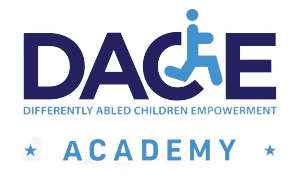
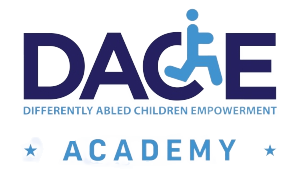
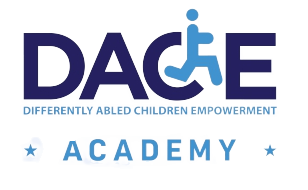
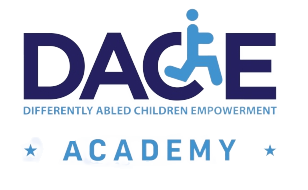
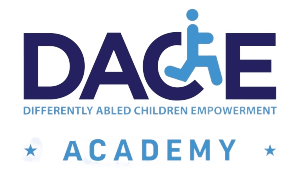
No Comments